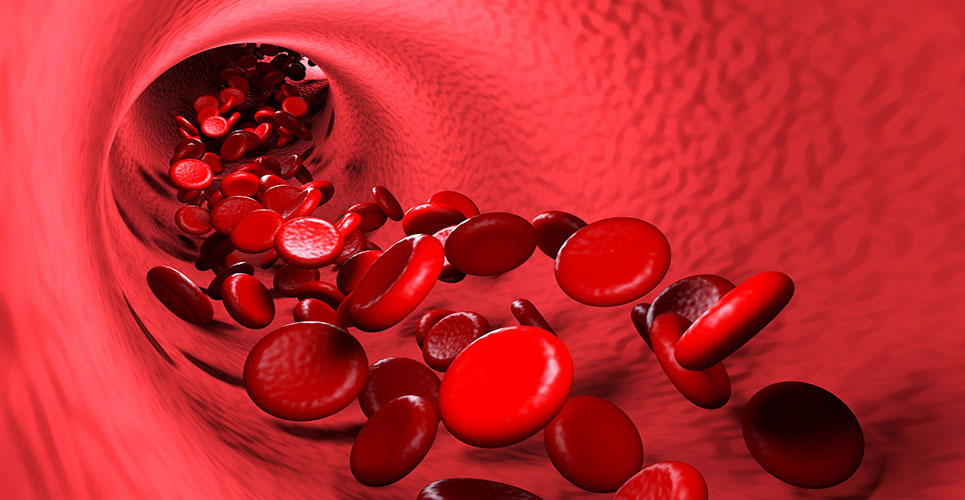teaser
In a large Phase III clinical trial, Tasigna (nilotinib) demonstrated greater efficacy over Glivec (imatinib)* in the treatment of adult patients with newly diagnosed Philadelphia chromosome-positive chronic myeloid leukemia (Ph+ CML) in chronic phase.
In the first head-to-head comparison of these two oral therapies as initial treatment for this life-threatening blood cancer, Tasigna results showed statistically significant improvement over Glivec in every measure of efficacy, including major molecular response (MMR), complete cytogenetic response (CCyR) and prevention of progression to accelerated or blastic phase. The new data were presented as a late breaker abstract at the 51st annual meeting of the American Society of Hematology (ASH), held in December, in New Orleans, USA.
At 12 months, significantly fewer patients progressed to accelerated or blastic phase on Tasigna 300 mg twice daily than on Glivec 400mg once daily (2 patients vs. 11 patients), demonstrating a statistically significant improvement in disease control. In the study, Tasigna was well tolerated. Fewer patients discontinued due to adverse events from the Tasigna 300 mg twice daily arm of the study compared to the Glivec 400 mg once daily arm. No patients in the study had prolongation of QT interval >500 milliseconds. No sudden deaths occurred with either treatment.
“The outstanding rates of response observed with Tasigna, combined with the very low rate of disease progression, strongly indicate that patients who begin their treatment with Tasigna may have long-term improvement of progression-free survival,” said Giuseppe Saglio, University of Turin, San Luigi Hospital, Orbassano-Torino, Italy, a member of the study management committee.
“The efficacy results and tolerability of Tasigna should support its use in newly diagnosed Ph+ CML patients.”

With Tasigna 300 mg twice daily, the rate of MMR at 12 months was twice that of patients receiving Glivec 400 mg once daily (44% vs. 22%, p < 0.0001). In addition, 80% of patients achieved CCyR with Tasigna versus 65% with Glivec 400 mg once daily (p < 0.0001). Responses were achieved faster in the Tasigna group than in the Glivec group.
MMR was defined in the study as reduction in the level of the abnormal Bcr-Abl protein to less than or equal to 0.1% of the pre-treatment level based on an internationally agreed standard. This can be interpreted to mean that for every 1,000 cells containing Bcr-Abl that were present in the blood at the start of therapy, only one cell was present at the 12-month follow-up. CCyR indicates that no CML cells containing the diagnostic Ph chromosome can be seen in a sample of bone marrow taken from the patient.
“Novartis is pioneering research targeting the molecular origin of Ph+ CML, which has led to treatments of unprecedented effectiveness and safety,” said David Epstein, President and CEO of Novartis Oncology and Novartis Molecular Diagnostics. “Considering the already low rates of progression to advanced disease and the excellent long-term survival of patients on Glivec, the efficacy and safety profile of Tasigna at 12 months is fantastic news and brings promise for further improving the outcomes of patients with Ph+ CML.”
Tasigna is a potent and selective inhibitor of the Bcr-Abl protein that causes production of cancer cells in Ph+ CML. Upon initial reports of resistance in the Glivec registration trials, Novartis scientists created a new molecule, Tasigna, just a year after the launch of Glivec. The first clinical trials began just 21 months after discovery. The drug received its first regulatory approval in the second-line indication in 2007.
Novartis plans to file worldwide applications for approval of Tasigna as a treatment for adult patients with newly diagnosed Ph+ CML. Tasigna is currently approved in more than 80 countries including the European Union, United States and other countries for the treatment of adult patients with Ph+ CML in chronic phase or accelerated phase who are resistant or intolerant to prior treatment including Glivec.

